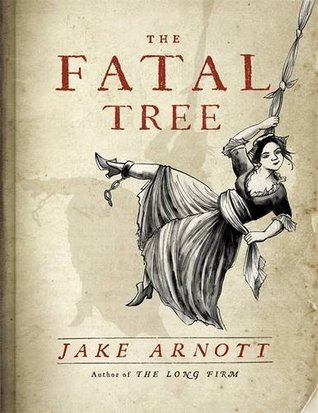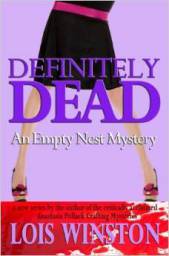- The Fatal Tree.
- Jake Arnott.
- 336 pages.
- Historical Fiction.
- My Rating: 4 stars out of 5.

Book Blurb:
London, the 1720s. Welcome to ‘Romeville’, the underworld of that great city. The financial crash caused by the South Sea Bubble sees the rise of Jonathan Wild, self-styled ‘Thief-taker General’ who purports to keep the peace while brutally controlling organised crime. Only two people truly defy him: Jack Sheppard, apprentice turned house-breaker, and his lover, the notorious whore and pickpocket Edgworth Bess.
From the condemned cell at Newgate, Bess gives her account of how she and Jack formed the most famous criminal partnership of their age: a tale of lost innocence and harsh survival, passion and danger, bold exploits and spectacular gaol-breaks – and of the price they paid for rousing the mob of Romeville against its corrupt master.
Bess dictates her narrative to Billy Archer, a Grub Street hack and aspiring poet who has rubbed shoulders with Defoe and Swift. But he also inhabits that other underworld of ‘molly-houses’ and ‘unnameable sin’, and has his own story of subterfuge, treachery and doomed romance to deliver. As the gallows casts its grim shadow, who will live to escape the Fatal Tree?
Book Review:
I received a free copy of this book courtesy of the publisher through bookbridgr.
The Fatal Tree is set in the 18th century, the 1720’s to be precise and tells the story of Elizabeth Lyon, cast out from her job as a serving girl by her employer, Elizabeth arrives in London without the means to make a legitimate living or even survive. Just after her arrival Elizabeth is befriended by Punk Alice, a jade and Elizabeth soon turns to a life of vice herself as a means of earning a living.
Her occupation brings her to the attention of the prig-napper (thief-taker) Jonathan Wild and also that of Jack Sheppard a prig (criminal) and thus, throughout the tale their stories play out as their lives intertwine against the backdrop of the insalubrious London cityscape.
You know both me and this blog by now and suffice to say know that I steer away from spoiling the story for you, simply put The Fatal Tree finds Elizabeth Lyon awaiting trial and her fate in jail and through a reporter she tells us her life and the version of the events that put her in there, recounting how Elizabeth Lyon transformed into the notorious Edgeworth Bess the jade/buttock-and-file (prostitute and a prostitute who picks pockets) and criminal.
Interspersed with the chronicle of Edgeworth Bess through letters at the start of each chapter to his publisher Applebee is the narrative of William Archer, the grub street scribbler who is the reporter that Bess is reciting her story to and though only linked minimally, their stories do slighty overlap.
Archer’s own account isn’t of the criminal nature likes Bess’s and delves into the hidden LGBTQ society of the time and the taboo and unlawful act of sodomy.
The story told in The Fatal Tree really is fascinating. I’m a fantasy fan and as such it’s not my usual type of book by a longshot. However, something about it pulled me in, beguiling me (it’s nice to read different genres at times) and after reading the first few pages and questioning if it was actually a book for me or not I ended up thoroughly enjoying my time with The Fatal Tree and foray into the world of historical fiction.
One thing I need to mention is the ‘flash/cant’ used all through the book by the various canting crews (criminals). The flash is the language of the criminals and to those who are uninitiated with it, I feel that some could at times find it quite confusing in trying to decipher the words and their true meanings (Arnott does provide an in-depth and comprehensive glossary at the back of the book though that will fully aid you should you have any issues) and the flash itself is easily accessible after you’ve derived the meaning from the aforementioned glossary.
I personally didn’t have a problem with the language used and I have fantasy to thank for that. Having read both the books in Douglas Hulick’s excellent Tales of the Kin series (Among Thieves and Sworn in Steel) I was proficient enough in the flash to easily get by with the vernacular found in The Fatal Tree. The main protagonist in the Tales of the Kin series is Drothe, he is a Nose (informant) for the Kin (criminals) and in the series the flash/cant is often used to give the criminal underworld a valid vibe so that when bene lightmans (good day) was used in The Fatal Tree, I already knew the meaning and that my fine gentry-coves and gentry-morts is how fantasy helped me to understand the flash.





